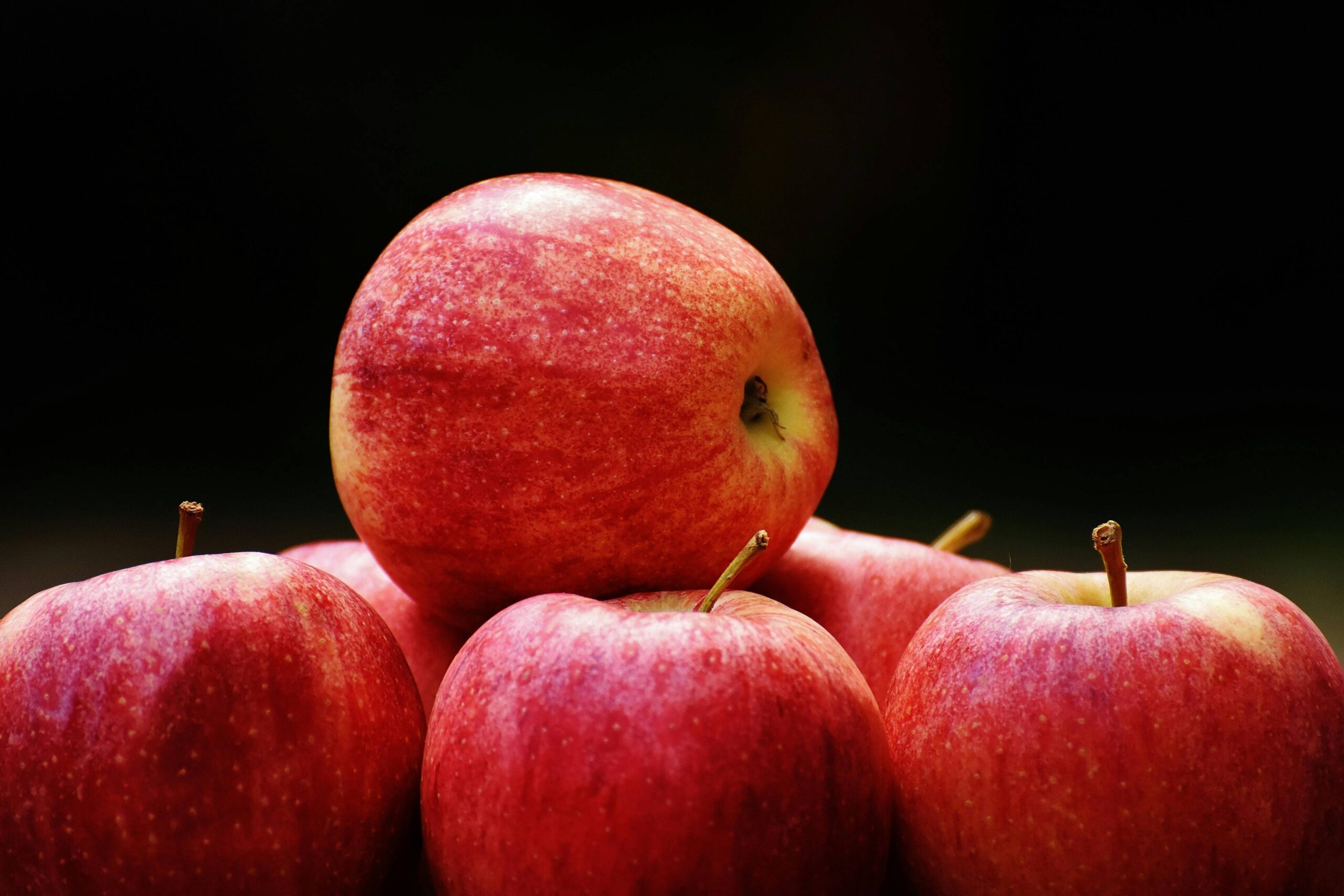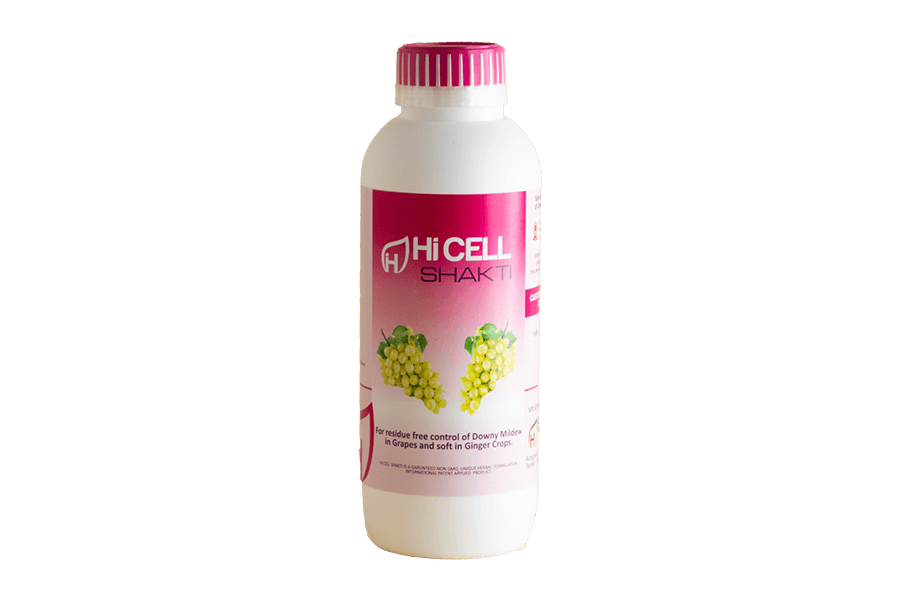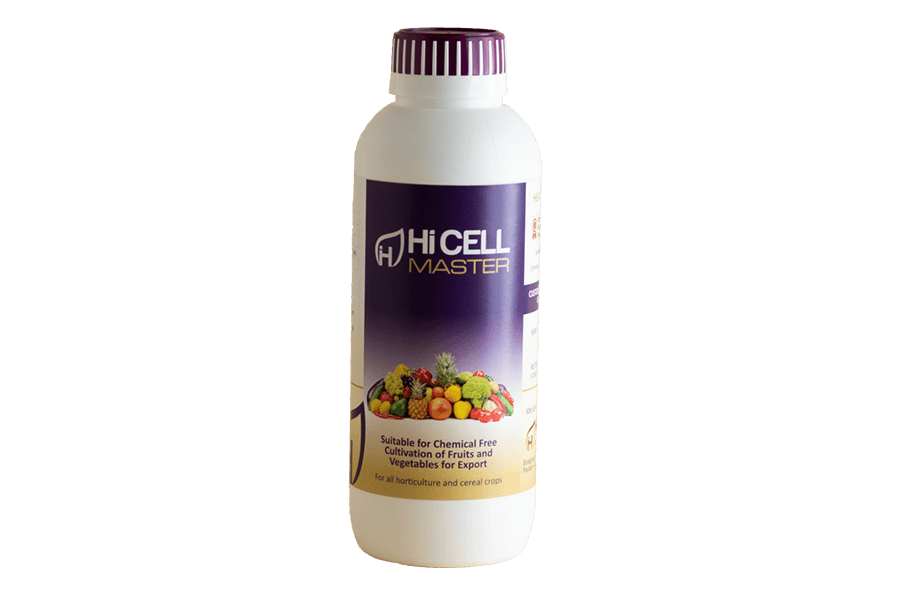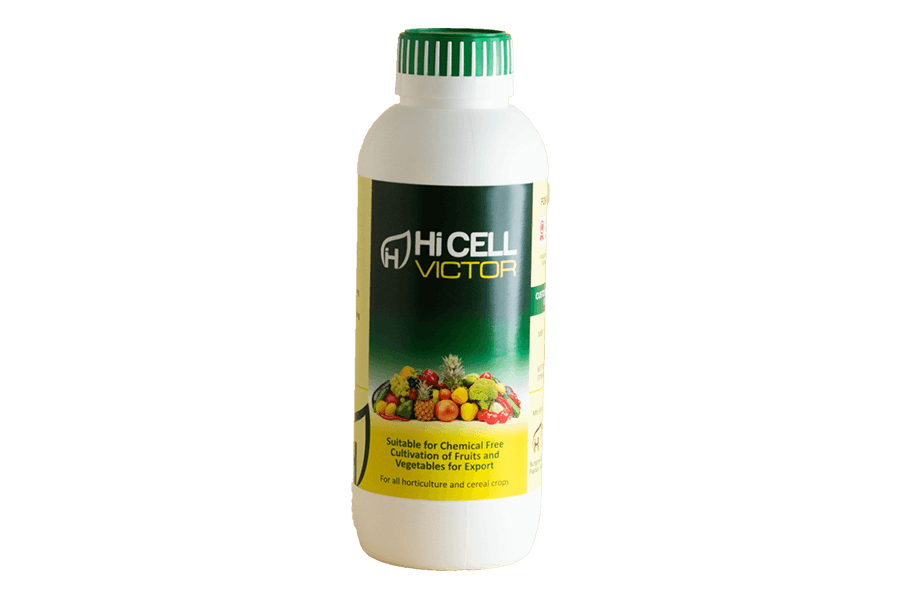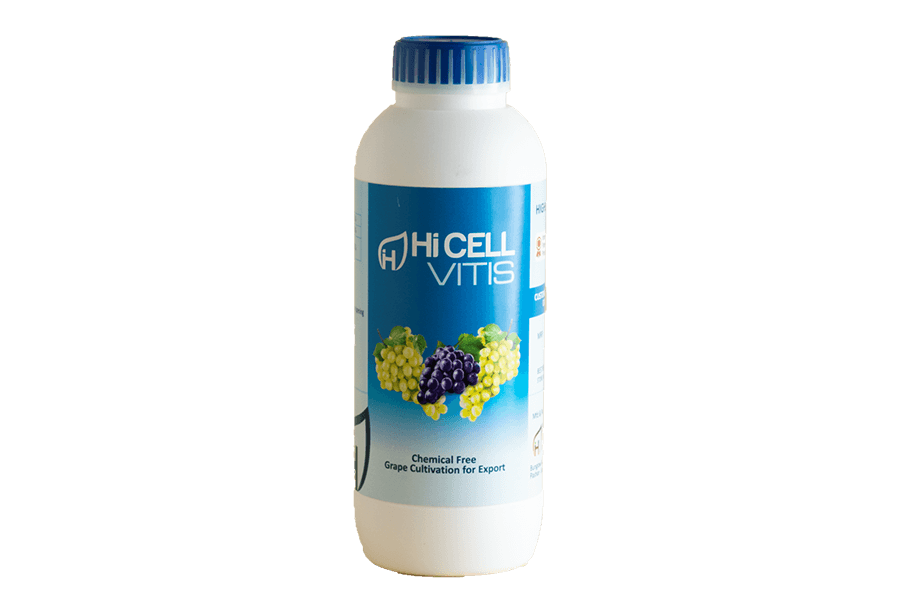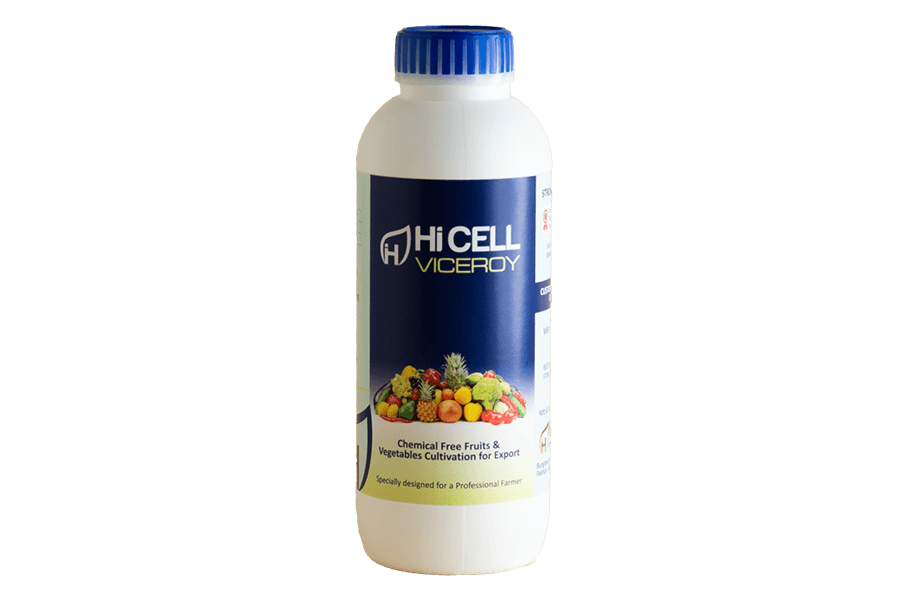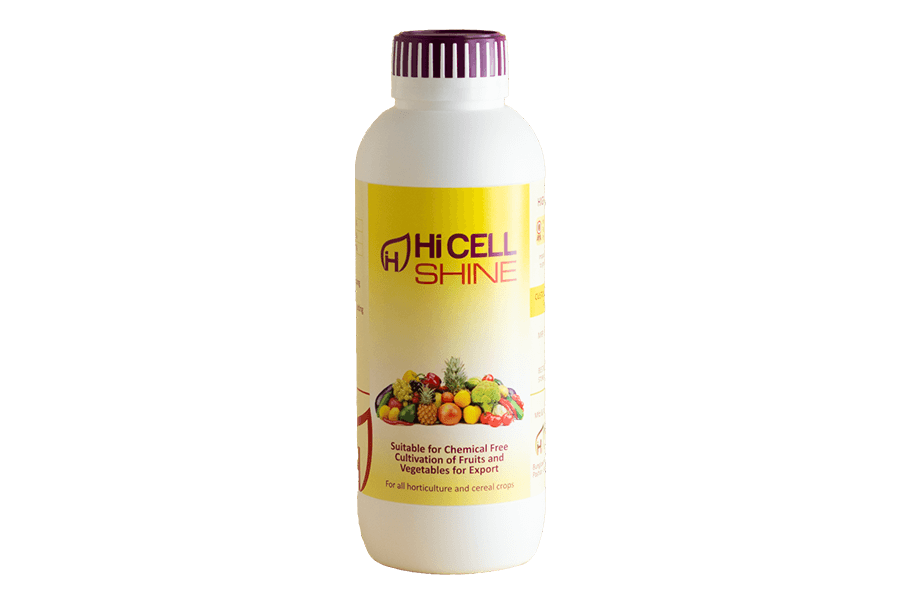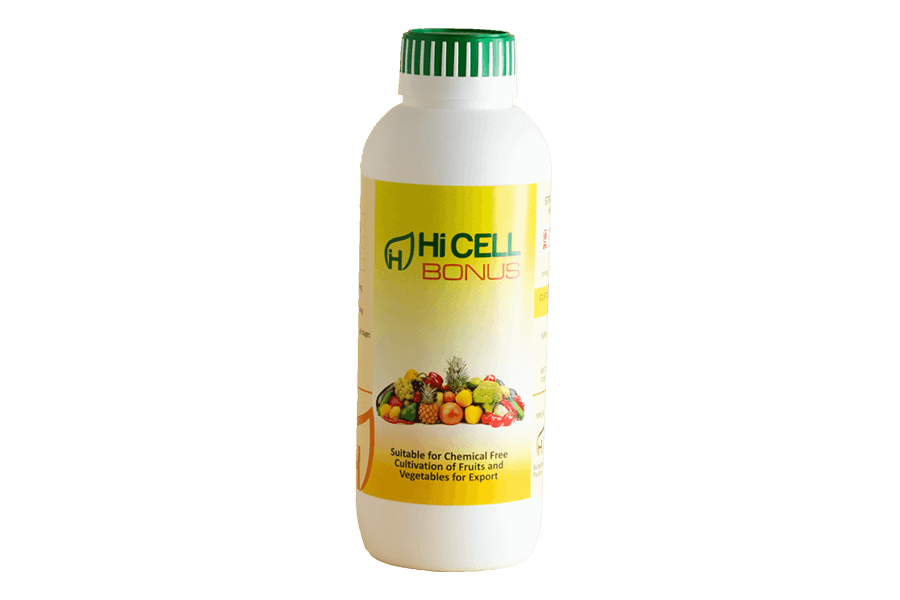
Hi CELL BONUS – POWDERY MILDEW
- HI Cell Bonus has a proven track record to control powdery mildew in all types of crops, including Grapes, Cucurbits, Apples, and Stone fruits.
- Hi Cell Bonus is also beneficial against Sclerectonia rolfsii type of pathogens.
- At 2ml/liter, it has preventive action, and at 4ml/L, “Hi Cell Bonus” has curative action.
- 100% herbal safe and tested for MRL as per EU norms.
- HI Cell Bonus improves the quality and size of the fruits.

